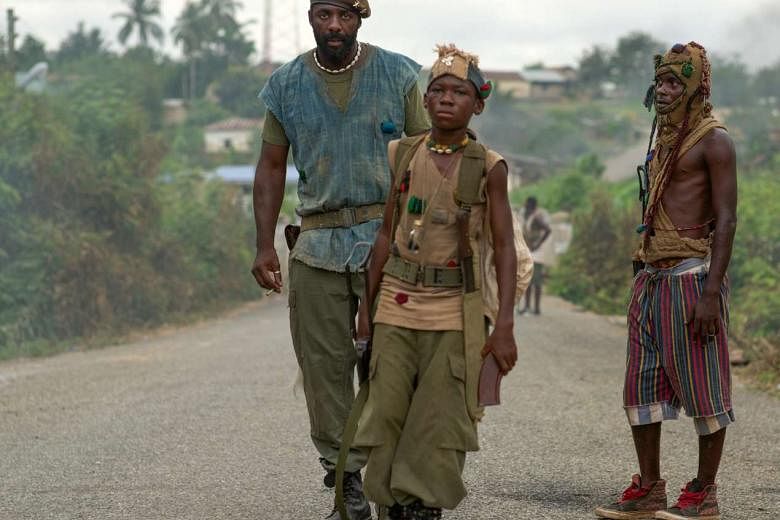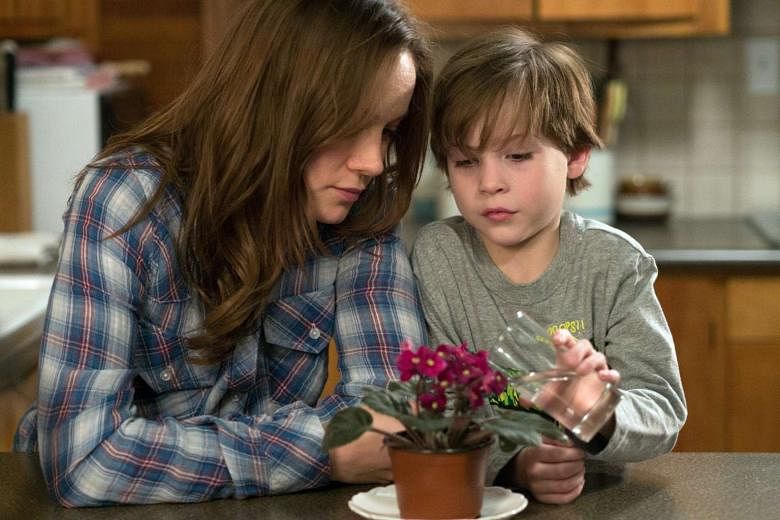One movie has been nominated for four Academy Awards while the other has received none. And while they may be vastly different, both are tied together by narratives of tragedy, seen from the point of view of children.
What is the point of a movie like Room, asked a friend? I could understand where he was coming from. The much-lauded film, nominated for four Oscars (Best Picture, Best Actress, Best Director and Best Adapted Screenplay), is about an abducted woman and her young son who escape their captor after seven years locked in a tiny room. It is a slow, quiet burn.
In many ways, not much really happens. For the first half of the movie, there are only two - okay, three when one counts the abductor - characters and the action takes place in the room.
Joy (Brie Larson) and her young son, Jack (Jacob Tremblay), who was conceived with her abductor and born in captivity, pass their days making up little rituals and fables in their restricted space, using their minds and imagination to expand their horizons. At first, these imaginings are a mode of mental escape, a device to keep on living; over time, they give way to the reality of an actual physical escape.
The second half of the movie kicks into gear at this point, with Joy and Jack finding themselves in the bigger outside world. Room, ultimately, is about the redemptive power of the child and, more specifically, a child's innocence.
Visually, even though it is largely set indoors - first in the locked room itself, then in a hospital ward and then in Joy's mother's house - it is a movie suffused with light. There is the light from a skylight in the captives' room, and subsequently, the bewildering bright lights which Jack sees when he bursts out into the free world, and then the light that streams in from the large windows of the family home.
I found myself thinking a lot about Room when I watched Beasts Of No Nation. Set in an unnamed village in Africa, it tells the story of Agu, a child soldier, as he is forced brutally into an adulthood marked by death, betrayal, torture and relentless cruelty. The two movies have little in common, apart from the fact that both have a young boy as protagonist and both are film adaptations of books.
But they are a compelling study of contrasts. Both are fictional interior journeys fashioned out of real-life horror stories we see on the news - the long-term captivity of young women who are abducted in plain sight and imprisoned in their customised private hell; and the child soldiers of African tribal and territorial wars that happen too frequently and are too many to name.
Agu starts out with a family and a fairly happy childhood. But all this falls apart swiftly; he is soon orphaned and recruited by a rebel troop. And his indoctrination into the horrors of survival begins.
In some ways, he leads a charmed life, having been singled out as a favourite of the militia's leader who regards him as a son. But that privilege, too, comes at a price, Agu's "father'' rescues him and he repays the favour by protecting him. But it is a horrific and twisted bond, where both make the worst of a terrible situation; unlike that of Joy and Jack, who make the best out of a terrible situation.
While Room is about hope and light at the end of the tunnel, Beasts is about the dimming of hope. One movie is literally suffused with light, the other is submerged in darkness. Despite the horrible circumstances of Jack's birth and Joy's ordeal, Room is a world, ostensibly, of hope and privilege. Beasts, on the other hand, is a world of barely humans living a fate worse than death.
Both movies, ultimately, are about the importance of the child as tabula rasa, the origin of compassion and the source of hope. Jack gives his mother hope and is her sole reason to stay alive. But what happens when the child himself is stripped of all hope? What happens when he, like Agu, has been sullied by the evils of a grown-up world, with nothing left to give?
Beasts Of No Nation has been infamously left out of the Oscars race this year, a race that has been hashtagged #OscarsSoWhite for its imbalanced racial representation. Indeed, while it might be hard to rustle up sympathy for Will Smith and Jada Pinkett Smith, who certainly enjoy their fair bit of fame and recognition, it is quite hard to understand why Beasts did not score a single nomination - not for its stars, Idris Elba, who plays the militia chief; and the heartbreaking Abraham Attah, who plays Agu; nor for its writer, director and cinematographer Cary Fukunaga.
Some say the movie's unusual distribution deal with Netflix, which resulted in several cinema chains boycotting it, might have had something to do with this. But perhaps it was overlooked because of its terrifyingly bleak and difficult subject matter. Beasts is not an easy movie to watch. But it is too significant to be overlooked.
•Ong Soh Chin is a former journalist with The Straits Times and director of her own media consultancy.
•Beasts Of No Nation is on Netflix. Room is in theatres.


